School Highlights
Reinhardt University serves 1,251 students (88% of students are full-time).
The college's student:teacher ratio of 5:1 is lower than the state community college average of 18:1.
Minority enrollment is 44% of the student body (majority Black), which is less than the state average of 61%.
Quick Stats (2025)
- Enrollment: 1,251 students
- Private-state tuition: $19,196
- Acceptance Rate: 70%
- Student:teacher ratio: 5:1
- Minority enrollment: 44%
- Source: Integrated Postsecondary Education Data System (IPEDS)
Top Rankings
Reinhardt University ranks among the top 20% of public schools in Georgia for:
Category
Attribute
School Resources
School Overview
The teacher population of 243 teachers has stayed relatively flat over five years.
Reinhardt University
(GA) Community College Avg.
Carnegie Classification
Baccalaureate Colleges: Diverse Fields
Associates--Public Rural-serving Medium
Institution Level
Four or more years
At least 2 but less than 4 years
Institution Control
Private not-for-profit
Public
Total Faculty
243 staff
209 staff
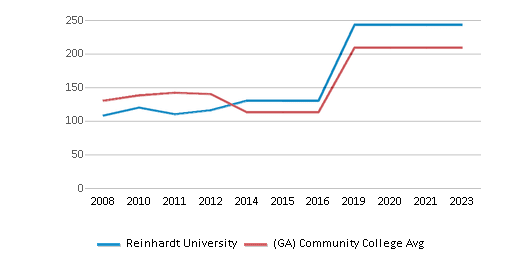
Student Body
The student population of Reinhardt University has declined by 17% over five years.
The student:teacher ratio of 5:1 has decreased from 6:1 over five years.
The Reinhardt University diversity score of 0.64 is less than the state average of 0.71. The school's diversity has grown by 15% over five years.
Total Enrollment
1,251 students
2,242 students
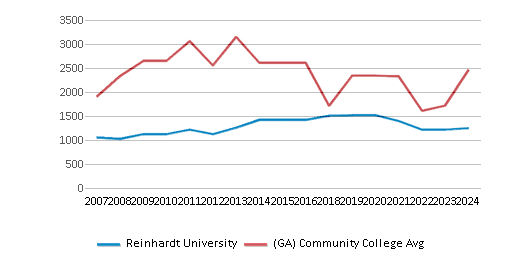
Student : Teacher Ratio
5:1
18:1
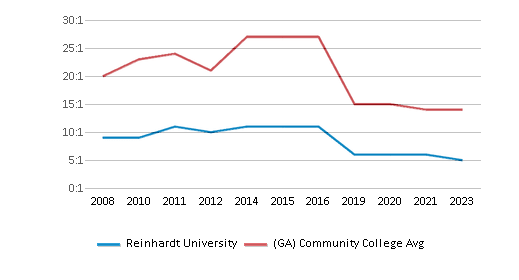
# Full-Time Students
1,102 students
882 students
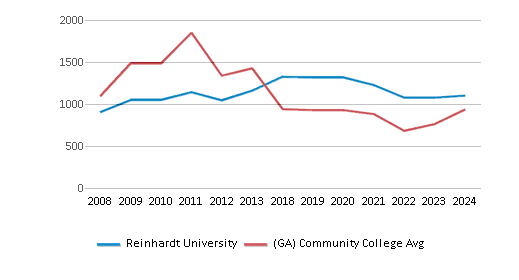
# Part-Time Students
149 students
1,722 students
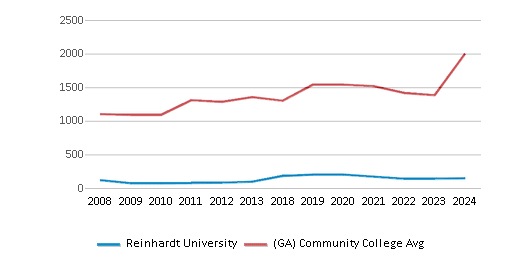
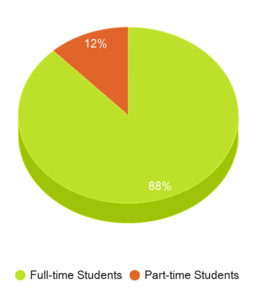
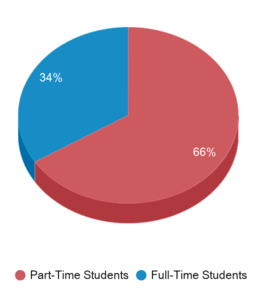
# Enrollment Undergraduate
114 students
299 students
# Full-Time Undergraduate Students
1,015 students
929 students
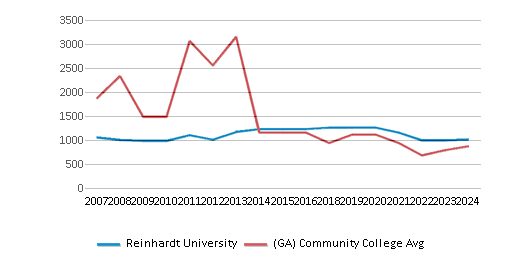
# Full-Time Graduate Students
87 students
87 students
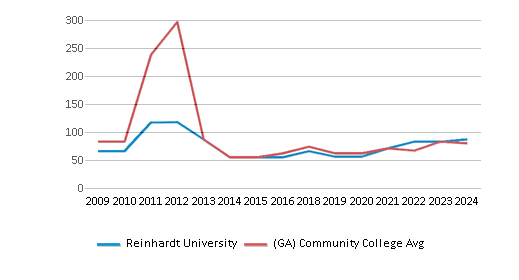
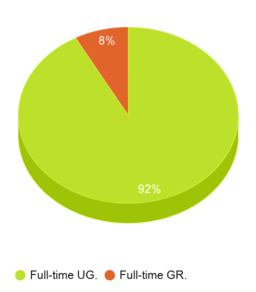
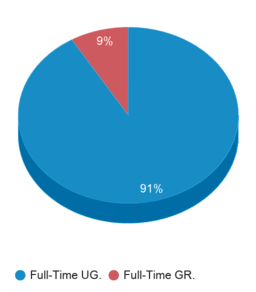
# Part-Time Undergraduate Students
132 students
1,891 students
# Part-Time Graduate Students
17 students
53 students
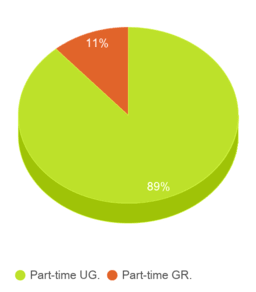
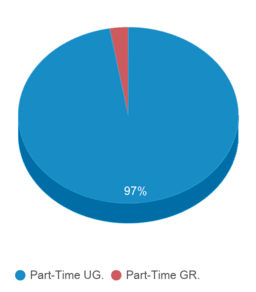
Total Dormitory Capacity
720 students
654 students
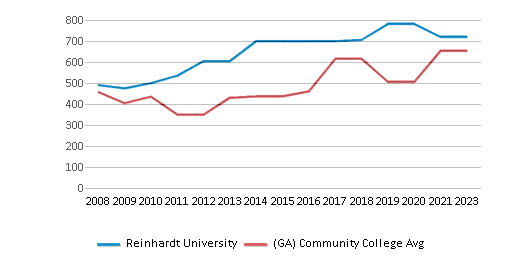
% American Indian/Alaskan
1%
n/a
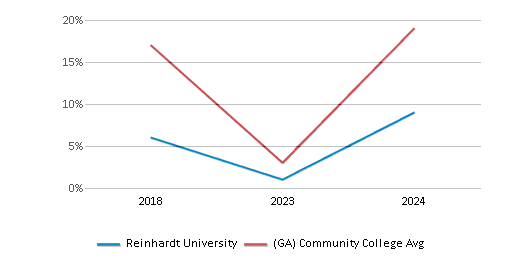
% Asian
1%
4%
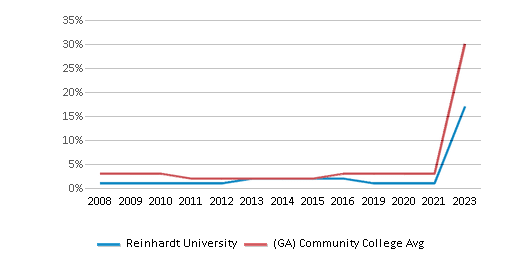
% Hispanic
8%
10%
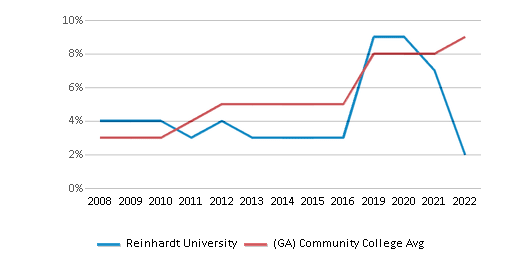
% Black
20%
35%
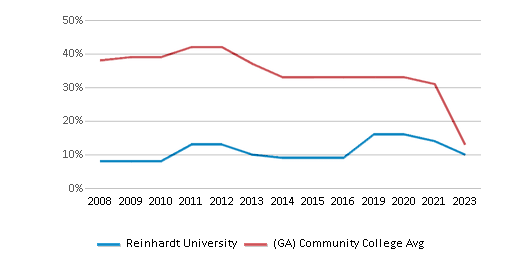
% White
56%
39%
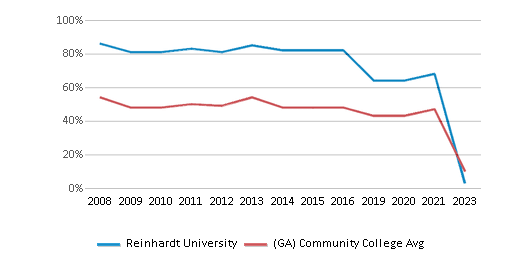
% Hawaiian
n/a
1%
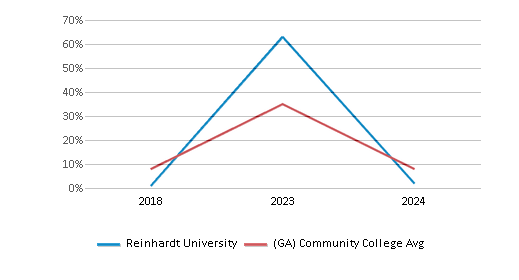
% Two or more races
2%
3%
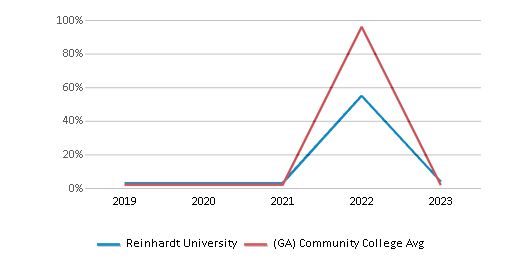
% Non Resident races
4%
1%
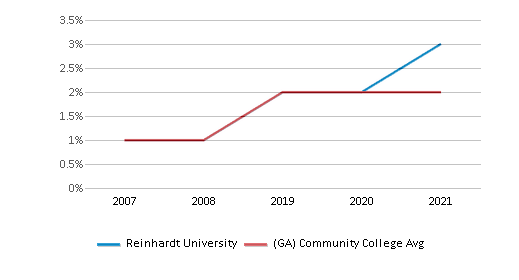
% Unknown races
8%
7%
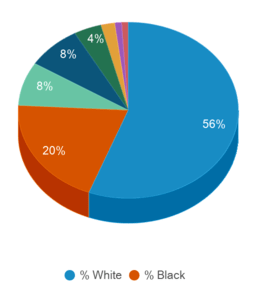
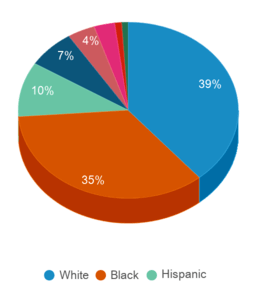
Diversity Score
0.64
0.71
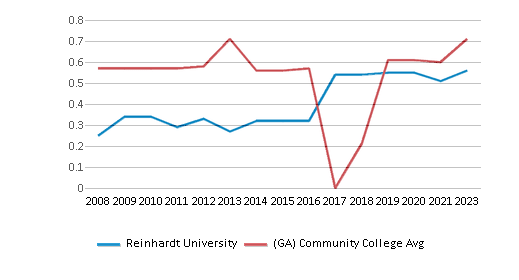
College Completion Rate (Students who graduate in less than 4 years)
n/a
0.4279%
College Completion Rate (Students who graduate in 4 years or more than 4 years)
0.3743%
0.2368%
Average Graduate Earnings (10 Years)
$38,500
$29,500
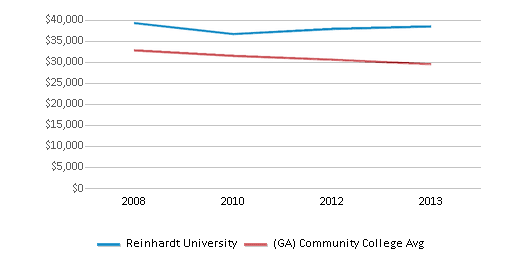
Tuition and Acceptance Rate
The private state tuition of $19,196 is more than the state average of $15,267. The private state tuition has declined by 23% over four years.
Private State Tuition Fees
$19,196
$15,267
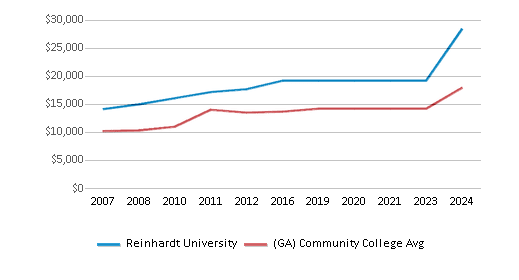
% Students Receiving Some Financial Aid
99%
93%
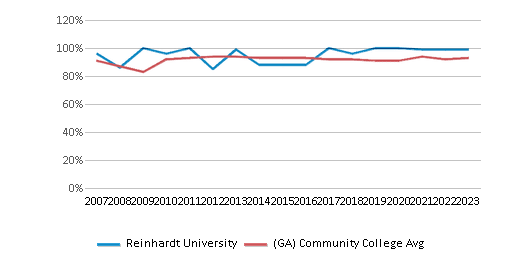
Median Debt for Graduates
$24,000
$12,139
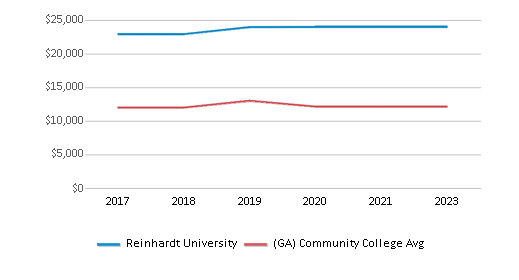
Median Debt for Dropouts
$8,250
$5,500
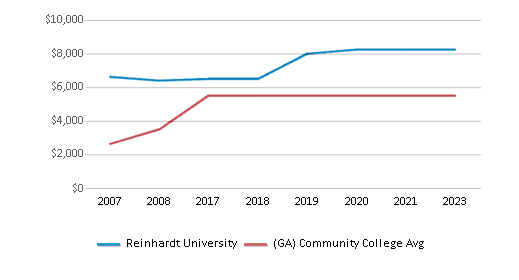
Acceptance Rate
70%
75%
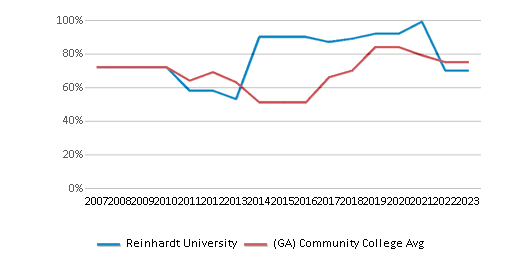
SAT Reading
535
533
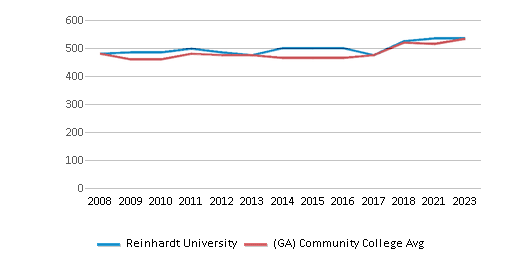
SAT Math
515
515
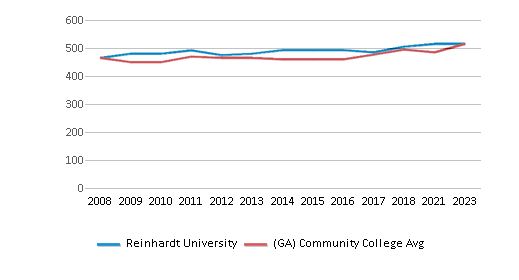
SAT Writing
475
440
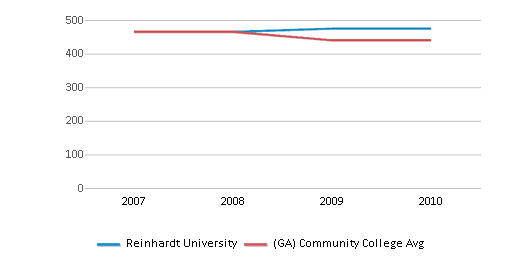
ACT Composite
22
20
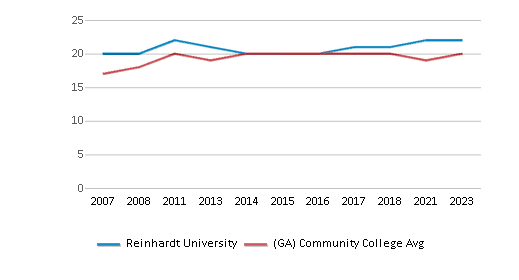
ACT English
21
19
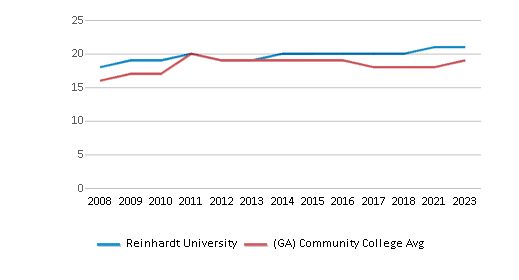
ACT Math
20
20
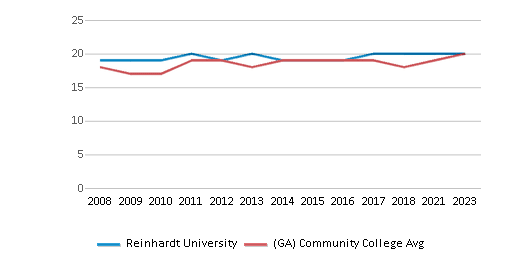
ACT Writing
n/a
7
Source: 2024 (or latest year available) Integrated Postsecondary Education Data System (IPEDS)
Frequently Asked Questions
How much does Reinhardt University cost?
Reinhardt University's private state tuition is approximately $19,196.
What is the acceptance rate of Reinhardt University?
The acceptance rate of Reinhardt University is 70%, which is lower than the state average of 75%.
What is Reinhardt University's ranking?
Reinhardt University ranks among the top 20% of community college in Georgia for: Percent of students receiving financial aid.
Recent Articles

Obtaining Your Bachelor's Degree at a Community College
Explore the evolving landscape of community colleges offering bachelor's degrees, addressing affordability, accessibility, and workforce needs.

A to Z of Community College Certificates and Courses
From business and healthcare to technology and skilled trades, the article showcases the breadth of options available to students seeking to enhance their knowledge, develop new skills, or pursue career advancement.

What is a Community College?
This comprehensive guide explains what a community college is, its history, and its role in higher education. It covers the types of programs offered, differences from four-year colleges, benefits of attending, and important considerations for prospective students, providing valuable insights for those exploring educational options.









